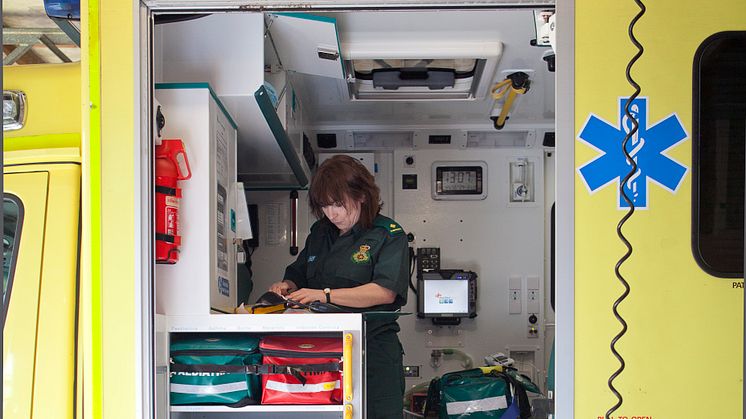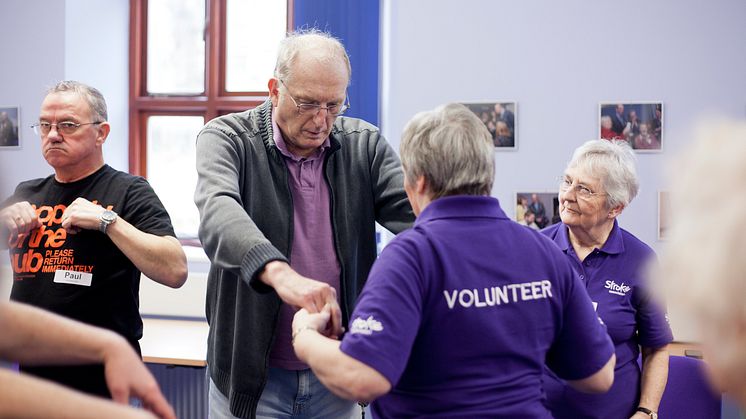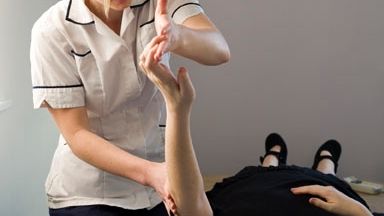
Press release -
Stroke patients in England face permanent disability following postcode lottery in treatment
- Almost half (48%) of stroke patients in England receive a brain scan within one hour, yet in North Tees and Hartlepool over a third (36%) of stroke patients wait over 12 hours for a brain scan.
- Across England, almost nine out of ten (85%) people who are eligible for thrombolysis receive it. In South Tyneside, fewer than half (43%) eligible stroke patients are treated with clot-busting drug treatment (thrombolysis). Thrombolysis needs to be administered within four and a half hours; the sooner thrombolysis is given, the safer and more effective it is in reducing a stroke survivor’s disability.
- The current National Stroke Strategy calls for all patients to be treated in specialist stroke units. Yet just over half (58%) of applicable stroke patients in England are directly admitted to a stroke unit within four hours, and in Worcestershire, this figure falls to just under a third (29%) of stroke patients.
Patients across England are waiting too long for vital hospital treatment which could significantly reduce the impact of their stroke, the Stroke Association has found. On World Stroke Day [Saturday 29 October] 2016, the charity launches a new map revealing significant variation in access to stroke treatment across England, including brain scans, specialised stroke units and the clot-busting treatment thrombolysis.
The Stroke Association is highlighting the disparity in hospital treatment as part of its campaign, A New Era for Stroke, in which the charity is calling on the Government to commit to a new National Stroke Strategy for England when it comes to an end in 2017. The charity is warning that without a strategy in place, increasing numbers of stroke patients will face a postcode lottery of treatment.
The charity’s stroke treatment map, which uses figures from the Stroke Sentinel National Audit Programme at the Royal College of Physicians(i), reveals that from April 2015 to March 2016:
Juliet Bouverie, Chief Executive of the Stroke Association, said: “Over the past decade, we have made great strides in stroke treatment. We know there are hospitals, stroke units and dedicated professionals leading the way for stroke treatment up and down the country. But currently, the stroke treatment people receive depends on where they live.
“These latest figures show shocking variations in vital stroke treatment across England. Stroke is a medical emergency, and when swift treatment is not given to those who need it, people’s recoveries are put at risk. The longer a patient waits for a brain scan, the longer it will be before they receive the right treatment, and they are more likely to be left with a serious disability as a result.
“It is unacceptable that your postcode determines whether or not you face treatment delays if you have a stroke. We need the Government to take action and ensure hospital teams across the country have the support they need to provide local people with the best possible stroke treatment. Since the current Stroke Strategy was devised in 2007, the NHS has changed beyond recognition. The government simply cannot ignore the urgent need for a new strategy to ensure that every stroke patient can have the best possible life after stroke, regardless of where they live.”
To view the Stroke Association’s stroke care map, and to add your voice to our call on the Government through A New Era for Stroke, visit www.stroke.org.uk/WSD16.
Ends
Notes to editors:
The Stroke Association’s stroke treatment map shows England’s best and worst performing NHS hospitals for stroke treatment. It can be filtered to show access to the following:
- brain scans
- admission to specialised stroke units
- thrombolysis
- swallow screen.
- A stroke is a brain attack which happens when the blood supply to the brain is cut off, caused by a clot or bleeding in the brain. There are around 152,000 strokes in the UK every year and it is one of the largest causes of disability. There are over 1.2 million people in the UK living with the effects of stroke.
- Stroke Association is a charity. We believe in life after stroke and that together we can conquer stroke. We work directly with stroke survivors and their families and carers, with health and social care professionals and with scientists and researchers. We campaign to improve stroke care and support people to make the best recovery they can. We fund research to develop new treatments and ways of preventing stroke. The Stroke Helpline (0303 303 3100) provides information and support on stroke. More information can be found at www.stroke.org.uk
- The Sentinel Stroke National Audit Programme (SSNAP) is the single source of stroke data in England, Wales and Northern Ireland. It provides a comprehensive examination of stroke care. There are three main components of SSNAP, the clinical audit, acute organisational audit, and post-acute organisational audit. In addition, the National Clinical Guideline for Stroke is prepared by the Royal College of Physicians Intercollegiate Stroke Working Party, and accredited by the National Institute for Health and Care Excellence (NICE).https://www.strokeaudit.org/
- Stroke Unit Trialists Collaboration 2013 (https://www.ncbi.nlm.nih.gov/pubmed/24026639)
Topics
Categories
Regions
A stroke is a brain attack which happens when the blood supply to the brain is cut off, caused by a clot or bleeding in the brain. There are around 152,000 strokes in the UK every year and it is one of the largest causes of disability. There are over 1.2 million people in the UK living with the effects of stroke.
Stroke Association is a charity. We believe in life after stroke and together we can conquer stroke. We work directly with stroke survivors and their families and carers, with health and social care professionals and with scientists and researchers. We campaign to improve stroke care and support people to make the best recovery they can. We fund research to develop new treatments and ways of preventing stroke. The Stroke Helpline (0303 303 3100) provides information and support on stroke. More information can be found at www.stroke.org.uk












